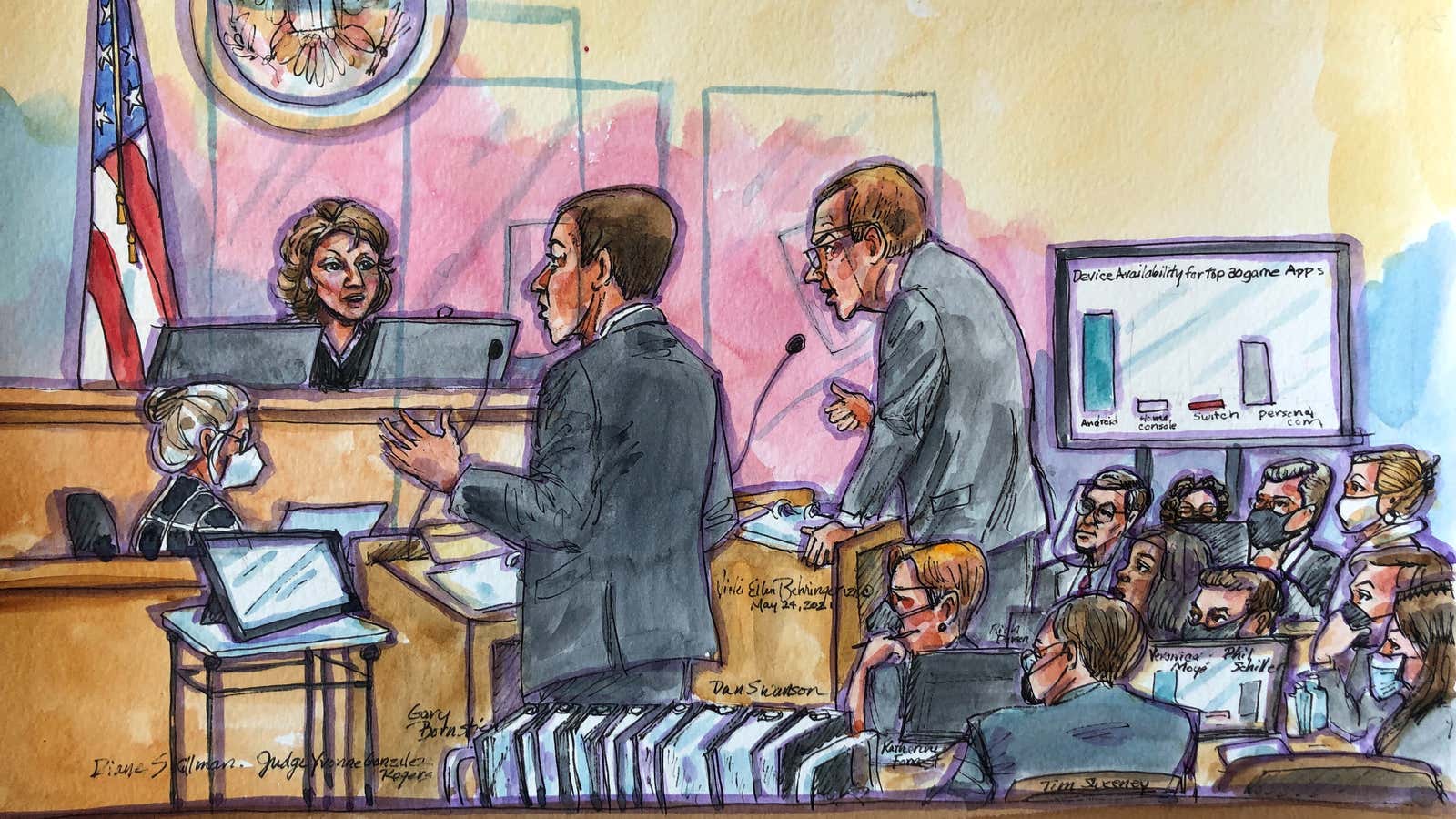A US federal judge dealt a major blow to Apple’s control over its App Store on Friday (Sept. 10) saying that the tech giant violated California law by not allowing developers to direct users to alternate sign-up and payment pages outside of Apple’s control.
Today, developers who list their apps in Apple’s mobile app marketplace must not only use Apple’s own payment system, but are prohibited from redirecting users to sign-up or payment pages bypassing Apple’s transaction fees. Ruling for Fortnite developer Epic Games, Judge Yvonne Gonzalez Rogers found Apple had violated California’s Unfair Competition Law, issuing a permanent injunction striking down Apple’s prohibition on external sign-up pages. The case has widely been seen as a crucial battle between developers and the mobile operating systems they rely upon. It also comes at a time when antitrust regulators in the US and around the world are looking closely at the largest US tech companies.
Apple won on all other fronts with the judge ruling that Epic breached its contract with Apple when it introduced its own payment system. Yet today’s ruling means Apple will surely lose revenue with developers who find the convenience of Apple’s system not worth its de facto tax. The company will have to change a long-held method that has previously allowed it to collect 15-30% of user payments to developers.
This is the latest in a string of bad news for Apple. On Tuesday (Aug. 31), South Korea passed a law allowing all developers on Apple and Google’s app marketplaces to introduce their own payment system, fully bypassing Apple’s hefty cut. In Japan, Apple settled with the country’s Fair Trade Commission on Sept. 2 to allow certain streaming apps like Netflix and Spotify to redirect mobile app users to sign-up on desktop pages to skirt their cut.
Now Netflix and Spotify will be joined by Apple. The injunction takes effect in 90 days, though the rulings could be appealed by either party.
The outcome could have been much worse for Apple. The judge ruled that Epic Games breached its contract with Apple by introducing its own payment system and Epic will have to pay more than $12 million to Apple. And Epic failed to convince the judge that Apple’s app store was a market over which the tech giant enjoyed an unfettered illegal monopoly. The judge said she could not determine that Apple was a monopolist under current law.
